Features
ELECTORS MUST DUMP TRUMP
Electoral nullification is a Constitutional mechanism
—and now is the time to use it!
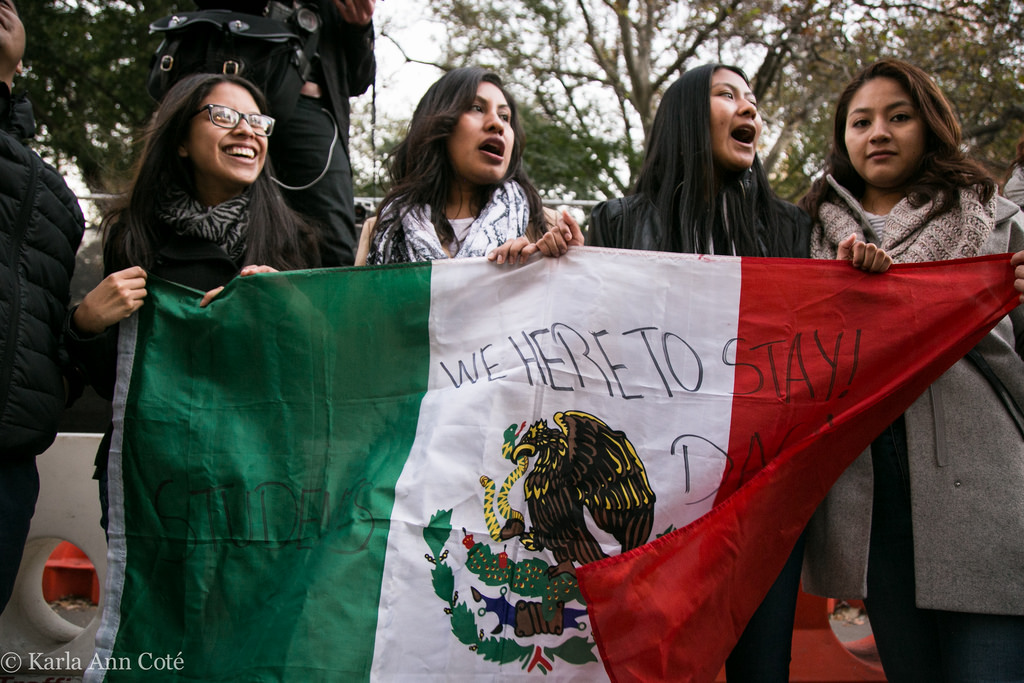
by Bill Weinberg, The Villager
The clock is ticking. We have until Dec. 19 to act. And the future of the country—indeed, the world—depends on it.
That's the day the Electoral College votes and makes Donald Trump's status as president-elect official. The electors have a duty to refuse to seat Trump—quite simply, on the grounds that he is a dangerous fascist, and it is unacceptable for a fascist to become the president of the United States.
I hope, after the appointment of white nationalist mouthpiece Steve Bannon as his top counselor, that it is not necessary make the case that Trump is an actual fascist. We have had many utterly monstrous presidents—Dubya and Poppy Bush, Reagan, Nixon. None of them were fascists. They did not openly play to racist hate, and they did not display Trump's dictatorial ambitions. Now we are looking at the Real McCoy.
It's ironic that the Electoral College—the institution that got us into this mess, by giving undue weight to "red state" voters—now holds the only hope of getting us out.
AMERICAN 'LEFT' ABETS GENOCIDE IN SYRIA

by Bill Weinberg, Fifth Estate
In the 1930s, the American left could claim solidarity with those who stood up to the authors of the Guernica terror in Spain. Today, in vivid contrast, it overwhelmingly stands on the side of fascism and genocide in Syria.
The Bashar Assad regime is daily raining death down on Aleppo and other besieged cities and towns, with massive military support from Russia. Hospitals have been targeted again and again, civilian areas reduced to rubble. Poison gas has been used repeatedly. After Assad supposedly eliminated his chemical arsenal in a Russia-brokered deal after the 2013 Ghouta sarin-gas attack, the regime merely turned to "repurposed" chlorine, dropped from "barrel bombs."
Starvation has become a weapon of the war, with the regime blocking food aid to besieged areas.
In areas the regime controls, it is now accused by the UN High Commissioner for Human Rights of a systematic "extermination" of the civil population—beginning with the prisoners. If only due to greater access to firepower and proximity to inhabited areas, the Assad regime has actually been responsible for far more civilian deaths than has ISIS.
This is the regime that the American "left" is, overwhelmingly, supporting. In response to this accusation, most "leftists" will retort that they are just against US intervention. The facts demonstrate otherwise.
TRUMP'S VICTORY AND MIGRATION
by Kristy Siegfried, IRIN
Note: This story ran on the eve of Election Day, on IRIN news service. —CounterVortex
Immigration has dominated the US presidential campaign like never before. Donald Trump's oft-repeated promise that, if elected, he will build a "big, beautiful" wall at the US-Mexico border helped secure him the Republican nomination, and his rhetoric about illegal immigration appears to have struck a chord with many working-class Americans.
But how many of his election promises on immigration are implementable? And what threat does a Trump presidency pose to migrant and refugee rights in the US and beyond?
ALGERIA: NEW STAGING POST FOR MIGRANTS
by Saskia Houttuin and Eva Huson, IRIN
ALGIERS — Gerwinio never feels completely safe when he walks around Algiers. The other day, the 27-year-old from Benin was taking an evening stroll when he heard monkey sounds coming from a group of laughing teenagers. Gerwinio averted his gaze and kept walking. He has become used to such racist taunts. "I was called 'Ebola' so often that I changed it into my Facebook name," he says.
Gerwinio is one of a growing number of sub-Saharan Africans coming to Algeria, although exact numbers are hard to come by. The Algerian government claims there are 25,000 such migrants in the country, but local NGOs say the true number is at least four times higher.
"It is way more visible lately that there is more sub-Saharan migration," said Pascal Reyntjens, mission chief for the International Organization for Migration in Algiers.
THE KGB HAD NOTHING ON VERIZON
by Bill Weinberg, The Villager
What really fills me with despair is that amid it all—the rise of an open fascist at the forefront of the Republican party, the relentless reign of deadly police terror, the impending collapse of the global biosphere—even the most quotidian aspects of our lives are being colonized by sinister corporate bureaucracies that eat up our time and energy... making it impossible for us to fight back against all that other stuff.
As heretical as it is, I have to confess that I am nostalgic not only for the pre-digital world, but also for the world before the Ma Bell break-up. I know this was supposedly a blow to the corporate leviathan, but service interruptions in the monopolistic era were virtually unheard-of. Today they are more or less constant.
Is this due the chaos of competing companies and technologies, as opposed to the efficiency of a centralized monolith? Or is it merely a function of digitization, and the decision to let the old copper wires deteriorate—those wires on which (as we shall see) I unwillingly depend?
In any event, Verizon (like its competitors) has perfect impunity to make my life hell—and demand that I pay them to do so.
DANES WHO STAND WITH REFUGEES
Activists Revive Heroic WWII-era Practice of Smuggling to Safety
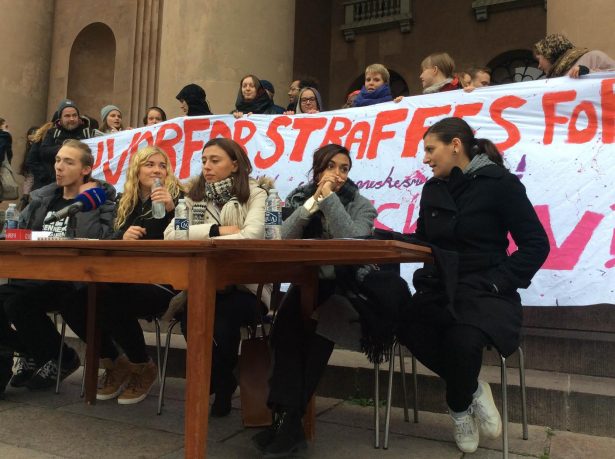
by Phil Wilomt, Waging Nonviolence
About 100 Danes, young and old, stood outside Copenhagen City Court in the chilly seaside winds last week to show their solidarity with four activists alleged to have illegally assisted refugees in their trek across the waters from Denmark to Sweden.
While only two of the accused are Danish citizens, all are members of MedMenneskeSmuglerne, or "Those who smuggle thy neighbor"—an outgrowth of the more broad-based initiative Welcome to Denmark, which welcomes migrants and refugees into the country.
Last year, over one million migrants and refugees from Syria, Afghanistan, Eritrea and other unstable nations endured the risks of exodus to Denmark and other parts of Europe. Many died during the journey or ended up in refugee camps for prolonged periods. This migration wave correlates directly to the growing xenophobia and shift to the right in many European countries, including Denmark.
"Pretty much all leftist organizations in Europe neglected to consider the refugee influx on their agendas," said Mimoza Murati, one of the non-Danish activists facing criminal charges that day. "We should have been prepared because we know the political landscape."
THE DAKOTA ACCESS PIPELINE
A Legal Environmental Justice Perspective
by Dayna Jones, Jurist
The largest multi-tribal gathering of indigenous peoples in North America in over a century is happening now at the Sacred Stone Camp in North Dakota. Leading the cause is the Standing Rock Sioux Nation. The Standing Rock Sioux and their allies are standing against construction of the "black snake" Dakota Access Pipeline (DAPL), slated to run under the Missouri River and through their historically sacred tribal sites. The tribe states it had not been properly consulted prior to construction of the DAPL, a requirement legally mandated by Executive Order 13175 (PDF). The order stipulates that: "[e]ach agency shall have an accountable process to ensure meaningful and timely input by tribal officials in the development of regulatory policies that have tribal implications."
The Standing Rock Sioux Nation's assertion that the Army Corps of Engineers, an executive agency charged with overseeing and granting pipeline permits, has failed to meet the clearly-enunciated requirement of meaningful consultation, makes this case one of the strongest Native American environmental justice legal claims in history. Environmental justice, a paradigm born of a merger between the civil rights and environmental movements, is unique in Native American communities. This unique status stems from the legal classification of tribes as domestic dependent nations, sovereign as political entities, yet still under the plenary authority of Congress, as per Article 1, Section 8 of the Constitution. The plenary authority of Congress over the tribes is a stretch at best, as Native Americans predate the Constitution. Nonetheless, the Supreme Court has established a solid judicial body of law giving Congress, and only Congress, the ability to act in good faith as wards over the affairs of Indian Country, such as the 1886 case of US v. Kagama.
SAUDI WOMEN PUSH FOR FULL RIGHTS
Demand End to Guardianship System

by Sarah Aziza, Waging Nonviolence
In Saudi Arabia, a country many view as synonymous with gender discrimination, women are seeing signs of change. While a few top-down reforms have come in recent years—the right to vote in municipal elections, for example, was introduced by King Abdullah in 2011—many working at the grassroots level are agitating for more fundamental change. Over the summer, activists launched an online campaign calling for the dismantling of Saudi Arabia's controversial "guardianship" system, which puts women under the authority of male relatives—something many see as a fundamental obstacle to women's basic rights in the kingdom.
For the past several months, Saudi women and their supporters around the world have tweeted under the hashtag #سعوديات_نطالب_باسقاط_الولايه ("Saudi Women Demand the End [literal: downfall] of Guardianship"). The campaign has also used the English hashtags #IAmMyOwnGuardian and #StopEnslavingSaudiWomen to draw in international supporters, as well as local advocates. The goal, says long-time activist Aziza al-Yousef, is to gain Saudi women the right to be "full citizens… [each] responsible for her own acts." Alongside their tweets, activists circulated a petition calling for the end of the guardianship system, which has garnered over 14,000 signatures. On Sept. 26, activists, including al-Yousef, brought the petition in person to the royal court, where they were unable to deliver the document, but were directed to send it via mail.





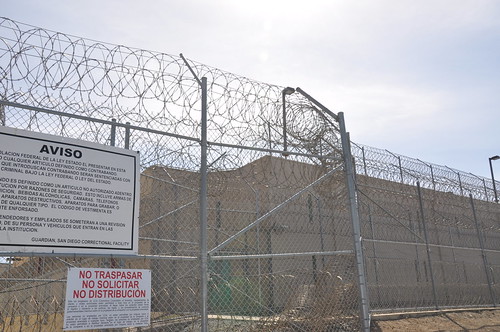
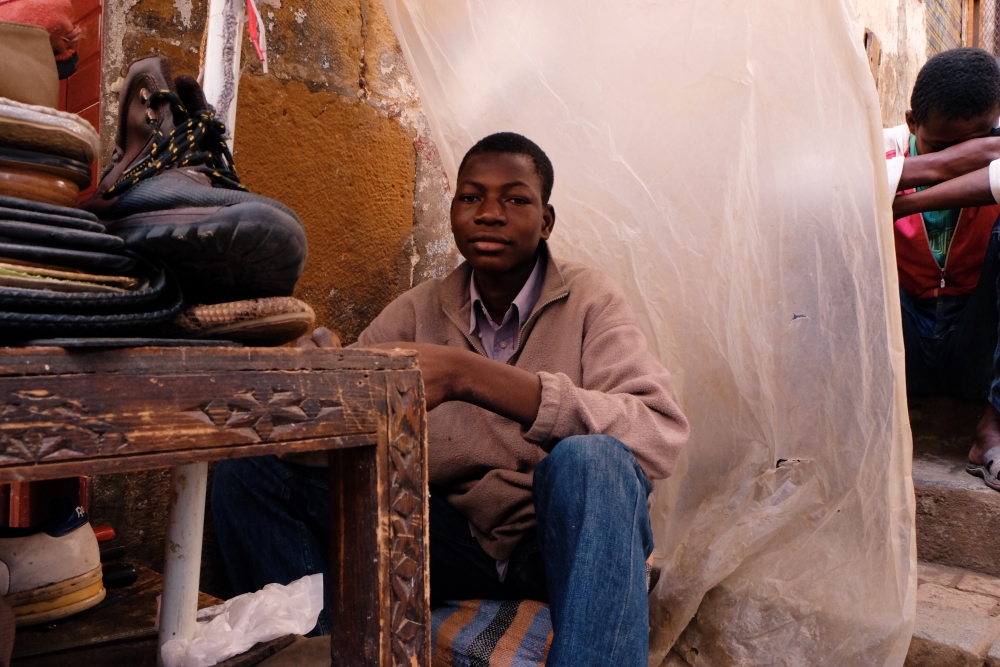

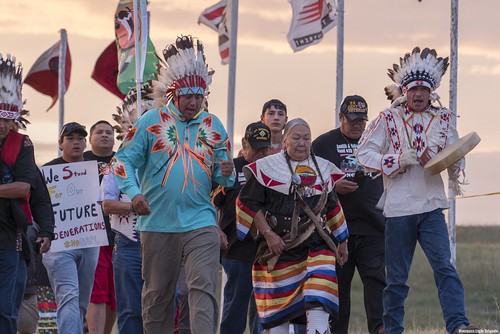










Recent Updates
1 day 6 hours ago
1 day 7 hours ago
1 day 7 hours ago
4 days 10 hours ago
1 week 2 days ago
1 week 2 days ago
1 week 3 days ago
1 week 3 days ago
1 week 4 days ago
1 week 4 days ago